Is a Language Disability Considered a Learning Disability?
August 14th, 2009A parent recently wrote in: Is a language disability considered a learning disability? My son has problems with both expressive and receptive language. He has a big difference between his visual and verbal scores on his test. That turned his language delay into a disability. There was a very large difference between the two. He is much better with visual than verbal, but I knew that when he was little. He has always been very visual. He also needs some help with speech, but the main problem is language. He also needs help with social skills and behavioral help.
I do have an IEP meeting scheduled in a few weeks so it will be ready to be implemented when he starts 1st grade. What kinds of things should I have in his IEP so that he is taught visually? Is there anything I should ask about? He is already getting speech and language help one day a week at school, but his diagnosis has changed from delay to disability since that was implemented.
In one word, yes, a language disability is considered a learning disability.
The National Center for Learning Disabilities states the following:
Specific Learning Disability: A disorder in one or more of the basic psychological processes involved in understanding or in using language, spoken or written, which disorder may manifest itself in the imperfect ability to listen, think, speak, read, write, spell, or do mathematical calculations. The term includes such conditions as perceptual disabilities, brain injury, minimal brain dysfunction, dyslexia, and developmental aphasia. The term does not include a learning problem that is primarily the result of visual, hearing, or motor disabilities, of mental retardation, of emotional disturbance, or of environmental, cultural, or economic disadvantage.
Disability categories: IDEA disability categories include autism, deaf-blindness, deafness, emotional disturbance, hearing impairment, mental retardation, multiple disabilities, orthopedic impairment, other health impairment (e.g., asthma, attention deficit disorder or attention deficit hyperactivity disorder, diabetes, epilepsy, heart condition, hemophilia, lead poisoning, leukemia, nephritis, rheumatic fever, sickle cell anemia and Tourette syndrome), specific learning disability, (e.g., Perceptual Disabilities, Brain Injury, Minimal Brain Dysfunction, Dyslexia, Developmental Aphasia), speech or language impairment, traumatic brain injury, visual impairment (including blindness), and developmental delay.
There are a few other things I’d like to share with you.
1. In CA there are services for those with severe speech &/or language disabilities. Kids are typically placed in a classroom where the teacher has a background speech & language [typically a speech & language pathologist].
Placement in a class that is specifically designed for speech & language students where I live are actually county classes – in other words, the county office of education has classes sprinkled throughout several public schools and they bus the kids to the specific school that has the program/class they need. These classes are for those with more severe language problems than one or two sessions per week with the speech person in a pull out program would be providing.
“Language is often described in two ways: expressive language and receptive language. Individuals with LD often have difficulty with both expressive and receptive language. There is a strong relationship between language and learning disabilities. Articles within this section provide information for parents and teachers about early warning signs of speech and language difficulties.” [LD Online]
2. Even if you send your child to a private school, if you want, you can access speech & language services from the public school. You will need to transport your child at the time of day the public school schedules him, but the public school should be providing it.
I was in a similar circumstance a number of years ago. One of my students was in a private school and I attended the IEP meeting at the public school. The parents kept the student at the private school but were able to transport him to the public school for resource services provided by the public school.
3. Regarding the IEP, you will want to come as prepared as possible. You might ask your son’s current teacher for any special things he/she is doing for your son. You will want to also make notes yourself on how he works best at home. To get a fuller picture of what is going on, you may want to avail yourself of an informal comprehensive assessment tool like the Learning Difficulty/Disability Pre-Screening Tool and Informal Comprehensive Identification Tool. It will give you a lot of information so you will be coming from a position of knowledge and strength to the meeting.
Hope this is helpful.
Bonnie Terry, M. Ed., BCET












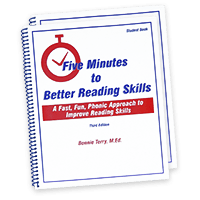
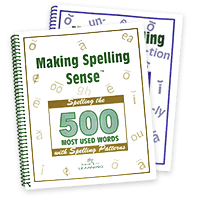

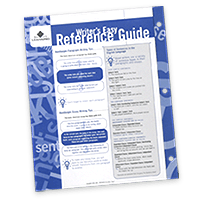
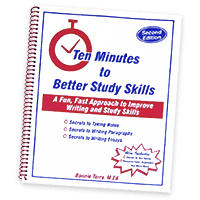



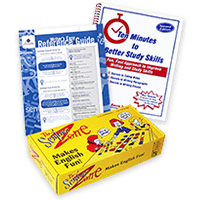
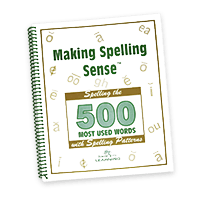









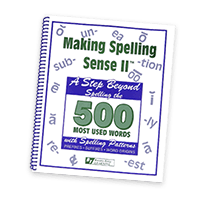
I am a student seeking my Masters in Education (not that I profess to be an educator) and am currently substituting in the local school system. I recently ran across, during my substituting an extremely bright young child with a speech deficiency. (A funny thing happened during my time there is that she spoke a seven word sentence without hesitation–her pronunciation was not always clear, but you understood the sentence, which was apparently a triumph).
Here is my question—with someone like this little girl, who is obviously bright, the problem lies in communication. There are two opposing forces here, 1) the school is devoted to making her a better speaker, however, 2) her lack of ability to speak her problems in understanding math limits her ability to progress in math. How do you deal with two education needs (math and language) while dealing in overcoming the child’s key disorder. My own belief: this child would do well in using a computer to write his/her thoughts on a computer instead of relying on improving her speeech…etc…..what do you think
Hi Joel,
There can be a variety of issues going on here.
1. speech difficulties
2. struggling with math
3. possible lacking math vocabulary so she doesn’t know what to ask regarding problems with understanding math
4. possible lacking in a step-by-step process for solving math problems
5. poor visual memory skills
6. poor auditory memory skills
7. poor spatial awareness
8. poor visual language association and classification
9. poor auditory language association and classification
10. lack of confidence in her ability to even say, “I don’t understand.”
When a student doesn’t have enough mathematical skills, they don’t know what to ask. She could just say she doesn’t understand. If she doesn’t have the language to ask, she still won’t be able to type or handwrite her questions.
The best overall solution would be to give her a step-by-step repeatable approach to doing math problems – that is delivered both verbally and in writing for her to refer to. Then you have some common ground. When you ask her if she understands the process, if she says yes, then have her both show you and explain what she is doing at the same time. Be sure she is comfortable with you so she doesn’t get upset as she is telling you. If it is too difficult for her to tell you, she could write down step-by-step what she is doing while she shows you.
A great product that shows student’s step-by-step how to do math – all of the processes (addition, subtraction, multiplication, and division) plus word problems, fractions, decimals, and percents is the BT Easy Math Reference Guide.
To discern the underlying causes of her math problems, the best thing to do would be to go through the Informal Comprehensive Learning Difficulty/Disability Identification Tool.
I hope this is helpful.
Bonnie Terry, M. Ed., BCET